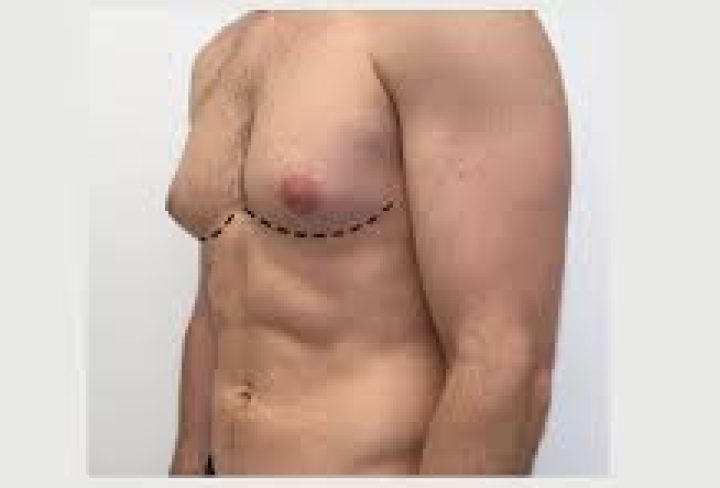By Dr. Shivam Dang – Cosmetic & Plastic Surgeon, Dehradun
Gynecomastia surgery, whether through liposuction or gland excision, is considered a permanent solution to the condition of enlarged male breasts. However, many men wonder if gynecomastia can return after surgery. In this blog, we will discuss the possibility of gynecomastia recurrence, what factors contribute to it, and how to minimize the risk of a relapse after surgery.
What Is Gynecomastia Surgery?
Gynecomastia surgery involves the removal of excess glandular tissue and fat from the chest area to create a flatter, more masculine chest contour. The procedure typically combines liposuction and gland excision for optimal results.
While the surgery provides a permanent solution to the problem, the question of whether gynecomastia can come back after surgery is one that many patients ask.
Can Gynecomastia Return After Surgery?
In most cases, gynecomastia surgery provides lasting results. However, recurrence is possible in certain situations. Here are some reasons why gynecomastia might return after surgery:
1. Hormonal Changes
- Why It Happens: Gynecomastia is often caused by hormonal imbalances, specifically an increase in estrogen levels or a decrease in testosterone. If these hormonal changes occur after surgery, new breast tissue may develop.
- What You Can Do: Regular check-ups with your surgeon and managing underlying hormonal issues with your doctor can help prevent recurrence.
2. Weight Gain
- Why It Happens: Significant weight gain can lead to the accumulation of fat in the chest area, which might create the appearance of enlarged breasts or pseudogynecomastia.
- What You Can Do: Maintaining a healthy weight through regular exercise and a balanced diet can reduce the risk of this type of recurrence.
3. Certain Medications
- Why It Happens: Some medications, such as anabolic steroids, anti-androgens, or drugs that increase estrogen levels, may trigger the development of gynecomastia.
- What You Can Do: Before starting any new medications, always consult with your doctor to ensure they do not contribute to hormonal imbalances.
4. Underlying Health Conditions
- Why It Happens: Conditions such as liver disease, kidney failure, or testicular disorders can lead to hormonal imbalances, which may result in the recurrence of gynecomastia.
- What You Can Do: Regular health check-ups and managing underlying health conditions can minimize the chances of recurrence.
5. Incomplete or Insufficient Tissue Removal
- Why It Happens: In some rare cases, if the glandular tissue is not fully removed during surgery, there may be a chance of recurrence.
- What You Can Do: Choose a qualified and experienced surgeon like Dr. Shivam Dang, who will ensure that all the necessary tissue is removed and the results are long-lasting.
How to Minimize the Risk of Recurrence
While there is a risk of gynecomastia returning after surgery, the good news is that you can take several steps to minimize this risk:
- Follow Post-Operative Care Instructions:
- Ensure you adhere to the post-surgery care plan prescribed by your surgeon. This includes wearing compression garments, managing any pain or swelling, and avoiding strenuous activities.
- Maintain a Healthy Lifestyle:
- A balanced diet and regular exercise are key to maintaining a stable weight and hormone levels. Avoiding obesity can reduce the risk of developing fat in the chest area.
- Monitor Hormonal Levels:
- Keep track of any hormonal changes by consulting with your doctor regularly. This can help detect any imbalances early and prevent recurrence.
- Avoid Steroid Use:
- Avoid anabolic steroids or any substances that can disrupt your hormonal balance, as they can trigger the return of gynecomastia.
- Regular Medical Check-Ups:
- Periodically check with your healthcare provider to ensure that your hormonal levels are within the normal range and to monitor any changes in your overall health.
Conclusion: Is Gynecomastia Likely to Return After Surgery?
Gynecomastia surgery offers a permanent solution for most patients, but recurrence is still possible under certain circumstances, including hormonal imbalances, weight gain, or medication use. By taking preventive steps and following your surgeon’s post-operative care instructions, you can significantly reduce the risk of gynecomastia returning after surgery.
If you have any concerns about recurrence or are considering gynecomastia surgery, Dr. Shivam Dang is available for consultations and personalized advice on achieving the best possible results.
Why Choose Dr. Dangs Clinic for Gynecomastia Treatment?
- Experienced and Skilled Surgeon – Dr. Shivam Dang
- Advanced, Minimally Invasive Techniques
- Personalized Aftercare and Support
Book Your Appointment Now!
📱 Call/WhatsApp: 8077625122
🌐 Website: https://drdangsclinicdehradun.com/index.html
📸 Instagram: @drdangsclinic
📹 YouTube: Dr. Shivam Dang

